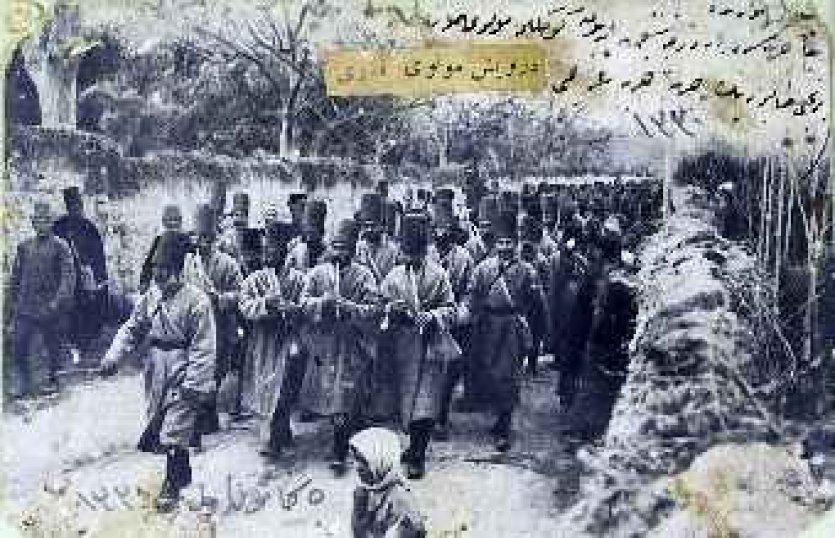a few interesting anecdotes about a variety of subjects.
One gets the impression that he came to the YAG from
the Galicia front in Romania, although he doesn't
explicitly say so.//

The transport capacity of the Hicaz Railway links between Damascus
and Amman and between Der'a and Tafile was so limited that even
one day's provisions for the army could not be transported. An army
corps at Homs that belonged to the 2nd Army, which was at Aleppo,
came from Galicia and its divisions were immediately included in the
Yıldırım Army Group (YAG).
The 43rd Division at Cebel-i Lübnan (Mount Lebanon), previously at
the HQS at Aleppo and then at Homs, was combined with a detachment
of a few hundred soldiers at Tedmür and put under the command of the
army corps that came from Galicia. The 43rd Division was assigned to
guard the Mediterranean shore together with a few local Gendarmerie
battalions and a Mevlevi regiment with two battalions.

The Mevlevi Regiment
But the 'Mevlevi regiment' was that in name only, since there were no
descendants of the grandfathers that once comprised it. There was,
though, a volunteer group from the Mevlevi regiment at Damascus but
they weren't fighters. Rather, it was an entertainment group. When I
was in Damascus I went to a few dinners where I listened to the
harmonies these elderly fellows played on their flutes and lutes.
There was also an army corps of the 2nd Army stationed at Adana. It
was manned much like the 15th Army Corps at Homs and its duty was
to guard the Mediterranean shoreline from Side to Mersin, with never
more than 5-6,000 troops.
With regard to meals for such a weakened army, the situation was quite
dismal. Although, when the troops on this front were commanded by
Turks (as opposed to Germans?) they were better off. In every matter,
from meals to health to whatever, there was a different structure and
approach. For example, when under pressure during the Battle of Gaza,
telegrams could be sent to the commanders, governors and other
officials at Aleppo, Damascus and Adana, with a response coming back
in 24 hours and the needed soldiers, ammunition, grain, flour, sandbags,
etc. procured.
Equally odd, the trains couldn't maintain a set schedule because they
were fueled with wood. So army commanders would somehow,
seemingly by magic, have to get the engineers and train crews to
deliver soldiers and ammunition to a particular place at a particular
time. How could the commanders do this? Because they had a sixth
sense of sorts, enabling them to calculate how many troops they could
get from a particular detachment, what kind of grain they could get
from a particular depot, how many sacks and bags they could get from
a province or a district.
These commanders knew how to address someone, based on that
person's aptitude, and the commander's word was the law. Punishment
was administered harshly. No one had the luxury of inaction or delayed
reaction. I don't know about the public at large, but in the army, and
especially during war, this type of discipline is appropriate.
However, during the retreat from Sinai to Palestine, when administration
was turned over to the Germans, the order within the army broke down.

General Friedrich Kress von Kressenstein was the
commander of Ottoman forces in the Sinai Desert.
//END of PART VI//

Hiç yorum yok:
Yorum Gönder